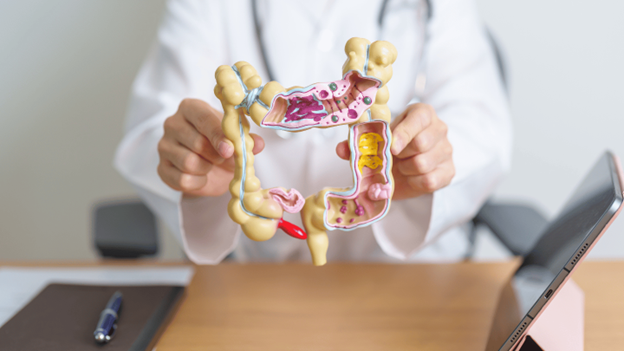
Digestive health is a complex and important part of your overall well-being, yet it’s often taken for granted—until discomfort or pain disrupts daily life. Conditions like diverticulosis and diverticulitis can significantly impact the digestive system, but many people are unclear about their differences or how they develop.
Diverticulosis and diverticulitis are two sides of the same coin regarding digestive health. While diverticulosis often flies under the radar, diverticulitis demands your attention with painful and sometimes severe symptoms.
The good news? Understanding the differences can help you to spot early signs, manage your health and know when to seek care.
In this guide, we’ll break down these conditions in plain terms, explore their causes, and arm you with practical tips to keep your digestive health on track. Whether you’ve been diagnosed, suspect something’s wrong or just want to stay informed, this article has you covered.
What is Diverticulosis? The Silent Condition Explained
Diverticulosis occurs when small, bulging pouches called diverticula form in the lining of the colon. This condition is often called "silent" because many people don’t experience any symptoms and may only discover they have it during a routine colonoscopy or imaging test.
These pouches develop over time, often due to weak spots in the colon wall. While diverticulosis itself is usually harmless, it can occasionally lead to complications like bleeding or infection if not managed properly.
Common Signs of Diverticulosis
- Mild abdominal discomfort or cramping
- Bloating or gas
- Changes in bowel habits, such as constipation
How Does Diverticulitis Differ from Diverticulosis? Symptoms and Risks
While diverticulosis often goes unnoticed, diverticulitis is a more serious condition that occurs when one or more of the diverticula become inflamed or infected. This can lead to noticeable symptoms and potential complications requiring medical attention.
Symptoms of Diverticulitis
- Severe abdominal pain, usually on the left side
- Fever and chills
- Nausea or vomiting
- Changes in bowel habits, such as diarrhea or constipation
Unlike diverticulosis, diverticulitis can lead to complications like abscesses, bowel obstructions or even perforations in the colon. Prompt treatment is critical to prevent these serious outcomes.
Managing Diverticulosis and Diverticulitis: Diet, Treatment and When to Seek Care
Proper management of diverticulosis can reduce the risk of its progression to diverticulitis. If you’ve already been diagnosed with diverticulosis or have had episodes of diverticulitis, making lifestyle adjustments can significantly improve your quality of life.
Dietary Tips
- High-fiber foods: Incorporate fruits, vegetables, whole grains and legumes to improve digestion and prevent constipation, which can strain the colon.
- Stay hydrated: Drinking plenty of water supports bowel health and reduces the risk of flare-ups.
- Limit red meat and processed foods: These can increase the likelihood of inflammation and aggravate digestive symptoms.
Treatment Options for Diverticulosis and Diverticulitis
- Diverticulosis: Typically requires no treatment beyond dietary adjustments and regular monitoring.
- Diverticulitis: May require antibiotics, a liquid diet during flare-ups, or in severe cases, surgical intervention.
When to Seek Medical Care
If you experience severe abdominal pain, fever or changes in bowel habits that persist, it’s essential to seek medical attention promptly. Early diagnosis and treatment can prevent complications and ensure you stay on top of your health.
Summit Health’s gastroenterology team is here to provide comprehensive care for all your digestive health needs. From diagnostic testing to personalized treatment plans, their experts will guide you every step of the way.
By understanding the differences between diverticulosis and diverticulitis and making proactive lifestyle changes, you can take control of your digestive health. With the proper care and guidance, you can manage these conditions and enjoy a healthier, more comfortable life.
